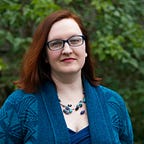The Heroine of Harlem
The daughter of a slave leaves her mark on cancer research
May was a musician. An incredibly talented pianist. She spent several years as accompanist for Paul Robeson (a renowned performer best known for his rendition of “Ol’ Man River”). She entered Columbia University’s Teachers College in 1917, with plans to major in music. Her racist professors made the experience hellish, giving her lower grades than the white students.
“[I was told] because I was of African descent, that unless I could afford to go to Europe for final ‘polishing’ in my music, I would probably end up singing in a cabaret in America,” May explained.
Dr. Jean Broadhurst, a professor at Teachers College, was impressed by a paper May had written on sanitation. She invited May to consider switching her major to science.
“If I chose science, my chances were better for a good future,” May concluded.
May Edward Chinn was born in 1896. Her father, William, was formerly enslaved by the owners of the Virginia Cheyne (Chinn) plantation. Her mother, Lulu, was a Native American from the Chickahominy Indian reservation near Norfolk, Virginia; the daughter of a slave. The couple met in Great Barrington, Massachusetts, and before long little May was born. They moved to New York a few years later.
Lulu went to work as a live-in cook for the wealthy Tiffany family of jewelers in New York city. At the Tiffanys’ Long Island mansion, May received music…
